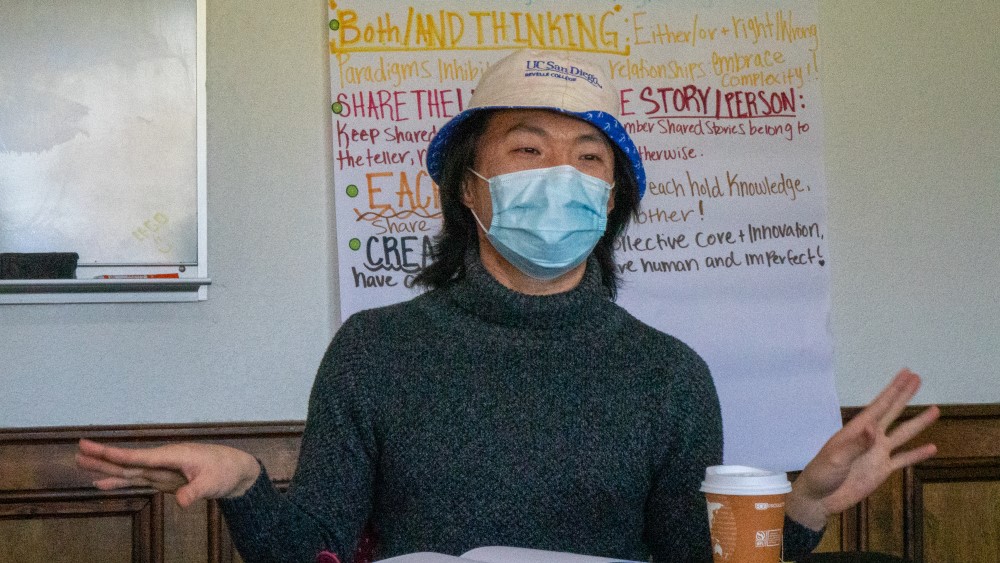
Tsim Nuj Vang Eduardo Stanley
ArteVism Fellow Joshua Slack and ArteVism Interns Shane Lara and Natalie Moreno contributed to this story.
The Pan Valley Institute (PVI) Staff, ArteVism Fellowship Interns, and new Learning Group members recently held a two-and-a-half-day residential gathering at the Wonder Valley Ranch Resort in Sanger, California.
We began by taking a moment of silence, as is AFSC’s tradition. ArteVism Intern Shane Lara opened with a land acknowledgement extending our respect and gratitude to the Yokuts and Mono peoples who have been stewards of the land of California's San Joaquin Valley since time immemorial. Shane reminded us that this is the first step and that we must go beyond acknowledgments and work towards supporting the Land Back movement and Indigenous sovereignty.
We had a full agenda planned to strengthen our relationships further, engage in various training sessions, and be in dialogue with grassroots community organizers from Madera and Merced. We were excited to experience what it feels like to have a safe and brave space to be and build out our shared agenda, aligning with the purposes, visions, and values. This grounded us in planning our time coming together as one community.
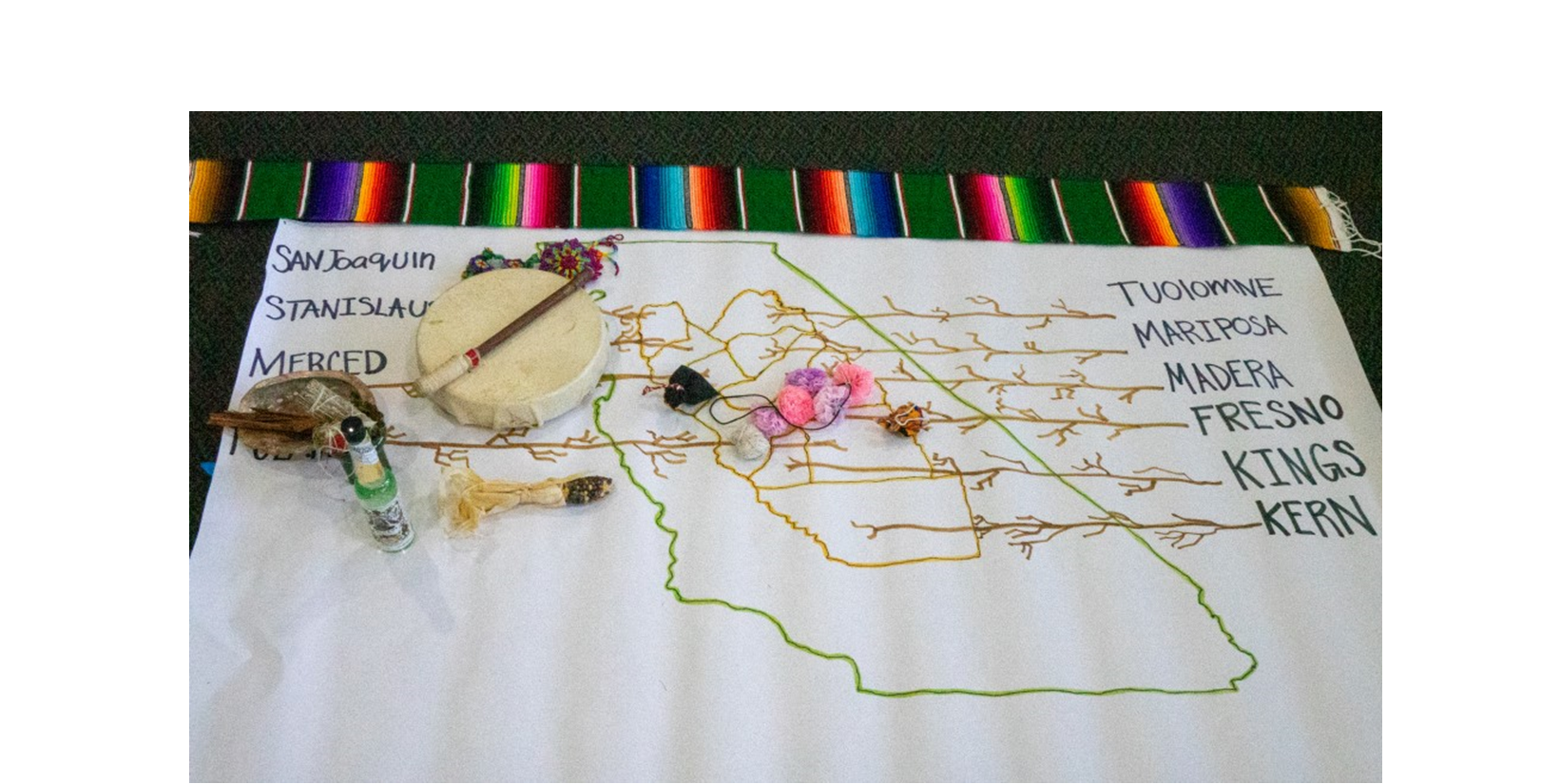
Central Valley map Eduardo Stanley
ArteVism Intern Natalie Moreno-Aguilar placed a map of the Central Valley into the center of our circle. We went around the circle, and each shared about the cultural item we brought and placed it on the map in the respective county we connected with.
This activity helped us share our personal context and our cultural and ethnic identities, communities, and lineage. Our cultural items represent part of our journey, ground us, and connect us to each other and our homes.
When building our shared agenda, we begin with ourselves. We know that we are always connected to our collective communities. As we went around the circle to share our responses to each question, we acknowledged our pain, traumas, and struggles were the result of the same systems of oppression that disempower and harm us.
In these responses, we also uplifted our stories of origin that activate us, moments of resistance, and showing strength tied to one another. It was healing to hear each other courageously express and process together. When we are in community, we support and sustain our collective fire to keep rising. Deeply interconnected, we are grounded in the reasons we keep moving toward change and transformation.
We each shared our longing for the better worlds that we dream of and show up so diligently to create, rooted in the love of family, community, and the humanity of our people.
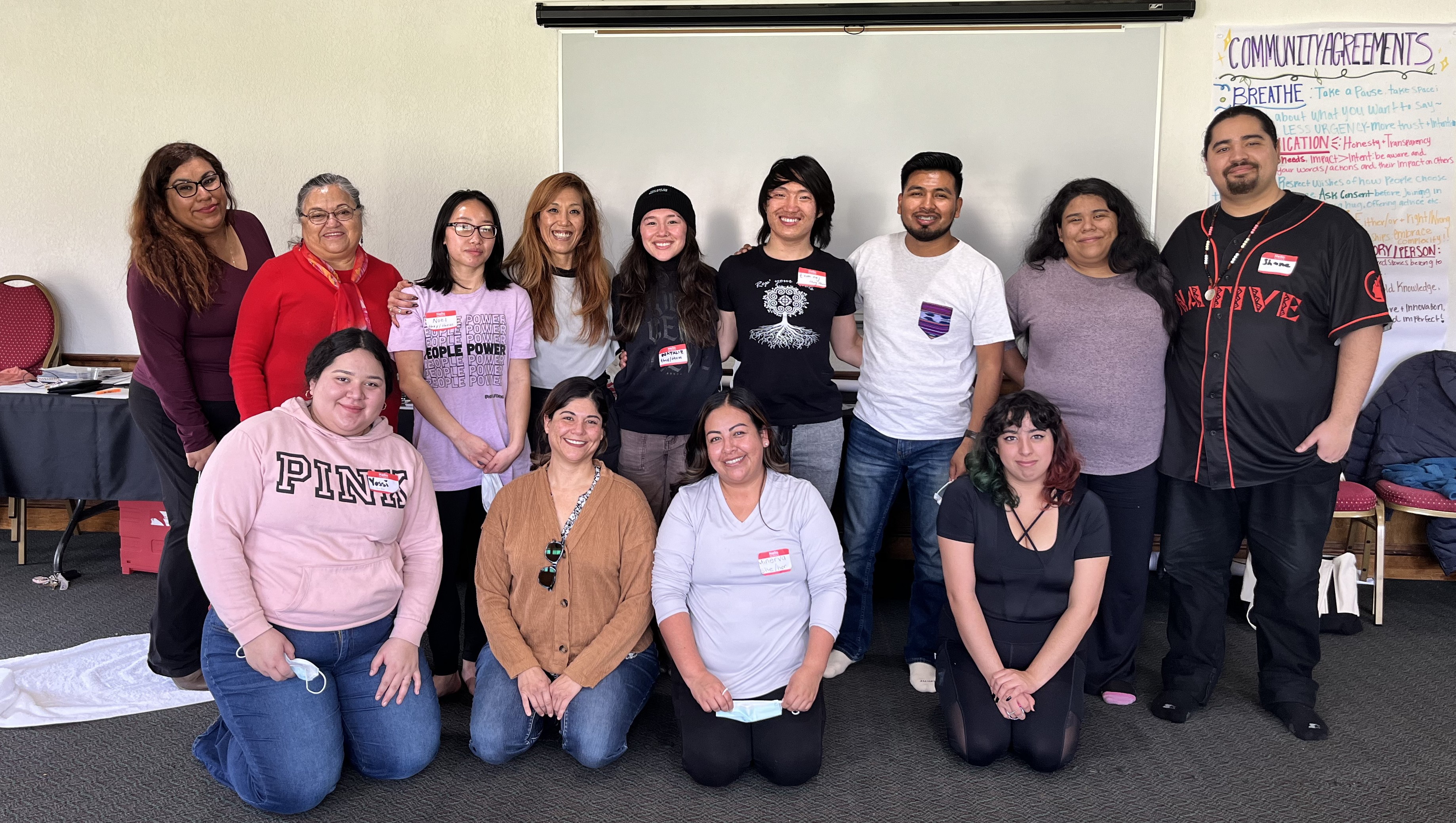
The ArteVism Team Daniella Galvez, Responsive Body
In the Grassroots Round Table dialogue, we heard from Jose Eduardo Chavez Garcia and Johanna Torres from the Madera community and Fue Xiong and Crisantema Gallardo from the Merced community. These community organizers are reshaping the political landscape of their cities.
Hearing their stories of upbringing, motivations, and dedication to return to their roots, embrace their identities and lived experiences, and find community and belonging provided much energy and hope for us all. We must remember where we come from and our roots to move forward and towards more just and liberated futures.
We have to bring our people with us. We know that for change to occur, it must come from us. We have each other. Especially in our region, when we organize and win, it is transformational for many years ahead. We should keep taking up space, even when it feels difficult; it is necessary because it is our space. We belong.
This conversation was only the beginning. We are so eager and hungry for it to continue and excited for the following discussions being planned soon.
Holly Johnston and Danielle Galvez joined us to share the work of the Responsive Body, reminding us that Love is an abundant and existing force that energizes us to keep showing up. We felt each other’s power by sharing the weight of our bodies, connecting, and knowing that we are responsible for one another.
Physically being together through embodiment shows that we need each other. We practiced radical joy and creativity. We even began to create a PVI line dance. Dancing and moving together is healing and life-affirming.
Dr. Gina Sandi Diaz reminded us of our power when using our voices to communicate our values, ideas, stories, and visions for our community. We discussed tips and learning from speeches from Dr. Martin Luther King Jr., Malala Yousafzai, and Dolores Huerta.
We then wrote elevator-pitch introductory speeches and practiced with one another. We know that to grow our movement, we need to find confidence and clarity to share our truths to power.
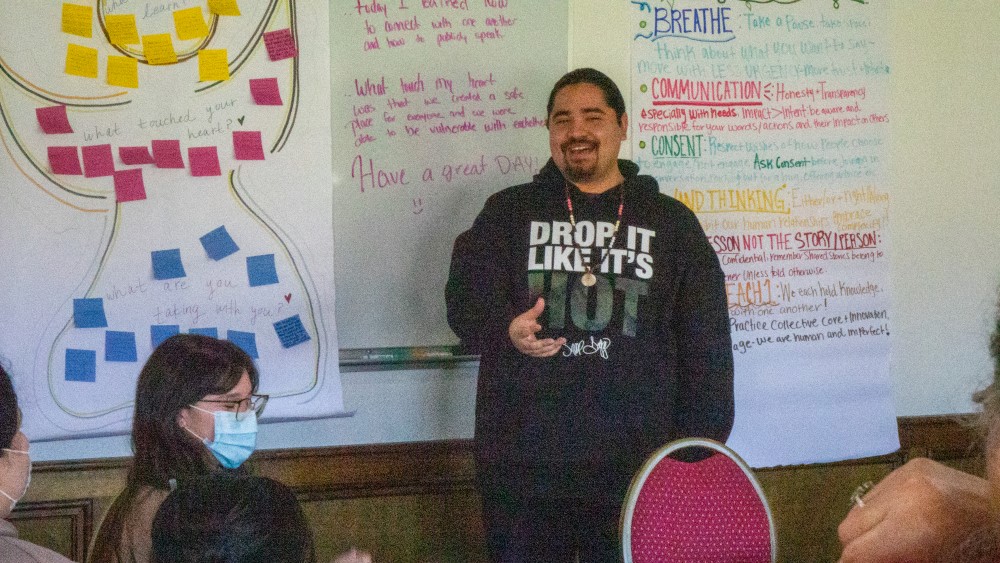
Shane Lara Eduardo Stanley
In his poetry workshop, Shane Lara led with questions inviting and encouraging us to reflect on Resistance. We practiced creative writing, and some of us even shared our poems.
Communicating how we feel, our passion and our commitment while humanizing people is the power of art forms like poetry. We are inspired to continue using art to energize our organizing and activism.
Spaces where the community is free to gather are life-affirming, transforming, and revolutionary. Spaces like these are needed in our community. As organizers and artivists, we create these spaces to practice, feel all the sensations, and begin to embody what it feels like to live more liberated, free, and whole. We know that our people, especially those living at the margins, will benefit and find themselves belonging to this community.
We dream up different and better worlds, and they manifest into reality in the spaces we cultivate. We commit to continuing the legacy of grassroots organizing, artivism, and movement building in the Central Valley, shifting the political landscape, prioritizing collective care, and resourcing our communities toward liberation.
Home is where we are planted. Home is here, where our people are. Home is where our people are free. We are grateful to everyone who joined us and made it possible.
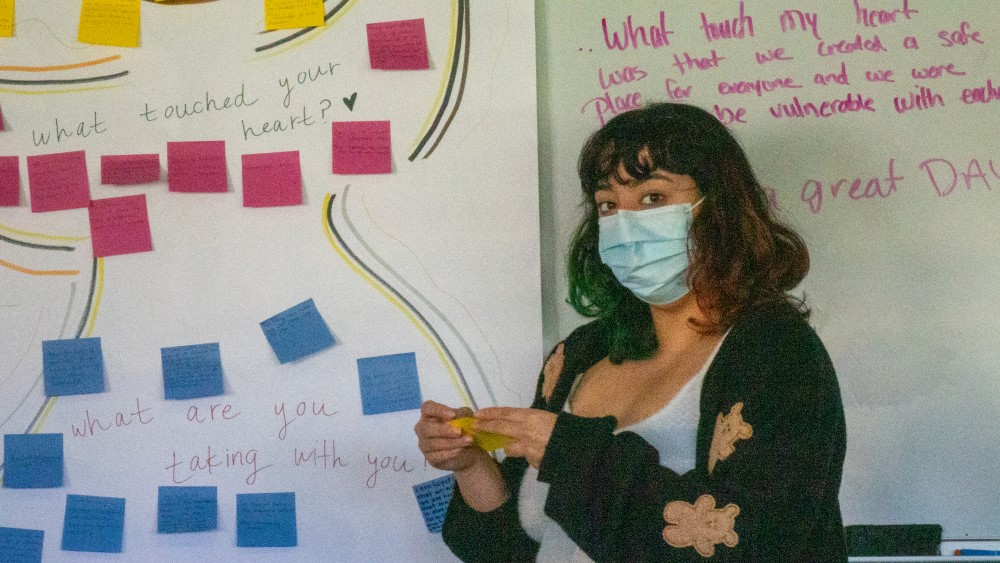
Denise Angulo, Learning Group member Eduardo Stanley